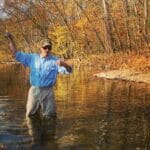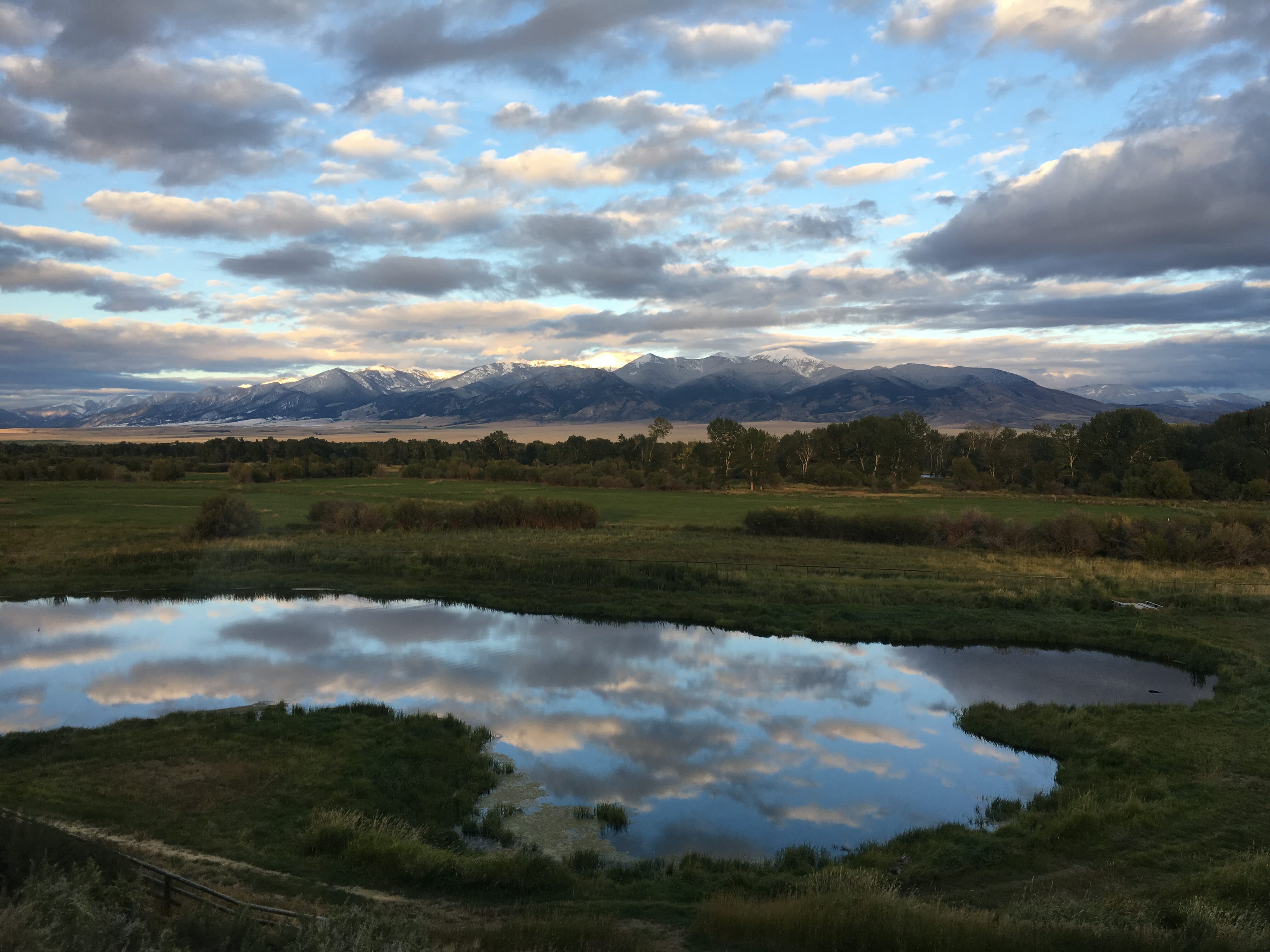by Chris Wood
Al Perkinson looks like a California surfer dude. He’s got wavy long hair and the languid movement of a gracefully aging athlete. He is also the guy who built the Costa del Mar brand, helped TU start the Five Rivers program, and now runs marketing for Simms. I was talking with Al about how TU could best engage people in stopping the rollback of the Clean Water rule. I could see Al’s eyes glaze as I talked about the science of intermittent and ephemeral streams and conflicting court cases.
Al then described how Simms is trying to better connect with millennials who now represent about 90 million people and approximately 70 percent of the purchasing power in the US. Millennials don’t buy into traditional hierarchies. They relate through networks, causes, and story-telling. This might sound corny or naïve, but they want to make the world a better place. It occurred to me that while Al is trying to help Simms sell more waders, he is also talking about a set of values that extend far beyond “returning profits for shareholders.” So, too, it is for us.
We all want to make fishing better. But more than that, we want to pass on to our kids a healthier land and water legacy than the one we inherited.
We live in a fractured society today where friendships are made and ended because of political views. Perhaps part of the solution is in the stories we tell? For example, the narrative that matters relative to the Clean Water Rule is less about intermittent and ephemeral streams and more about watching my boys grow up on a small stream in West Virginia. Of course, protecting Bristol Bay is about stopping an ill-advised mine but it is even more about honoring a way of life that has sustained generations of Alaskan natives for millennia.
A year ago, fish kills in the Yellowstone River due to low flows killed an estimated 1,500 whitefish and hundreds of wild trout. This year, outside of Yellowstone National Park, I signed an agreement negotiated by TU staff, Laura Ziemer and Pat Byorth that permanently protects 3 billion gallons of water in two important tributaries helping to protect late season flows in the river. The mining company that donated the water, Kinross, is a shining example of good corporate stewardship, and will be rightly celebrated. Kinross wasn’t compelled to make this agreement because of a court order. They did it because their CEO, Paul Rollinson, loves to fish and hunt. Yes, Kinross exists to develop minerals, but Paul also wants to make the world a better place.
Stories such as these abound at every level of Trout Unlimited. Scott Scarfone and Adam Nabors of Maryland TU started looking at small streams in the Upper Gunpowder because they love to catch native brookies. That passion didn’t end with a careful release of a colorful fish. They helped form a partnership with multiple agencies and the state to help protect and recover a basin that contains 25 percent of the remaining native brookies in the state.
Charlie and Kathy Breithaupt, and many other volunteers host the Rabun chapter Trout Camp in Georgia because they believe kids represent the future of our country. Along the way, some of the early graduates have become friends with Kathy and hunting buddies with Charlie.
These stories of people and places connected by a shared passion are how we will connect not just to millennials, but also Baby Boomers, Gen X and the Greatest Generation. They are how we will protect small streams under the Clean Water Act, and the amazing Bristol Bay fishery. They are how we can rebuild hope in what it means to be an American, and recover our native sense of optimism. They are how we will collectively make the world a better place.
Chris Wood is Trout Unlimited’s president and CEO. He lives in Washington, D.C., and works from TU’s headquarters in Arlington, Va.



